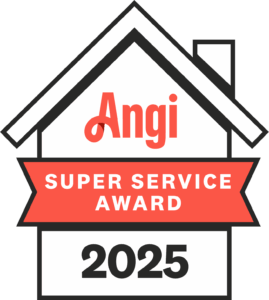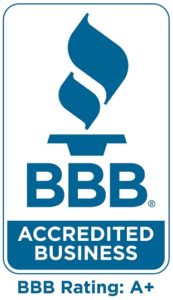Have you noticed your air conditioning system seems to be constantly running, yet your home still doesn’t feel cool or comfortable? Maybe you’ve had an HVAC technician out multiple times, or even bought a new AC unit, only to find you’re still sweating through another Illinois summer. If that sounds familiar, you might be tackling the wrong problem altogether.
When your air conditioner can’t keep up, it’s often not the system itself that’s the issue—it’s your home’s insulation.
Why Insulation Matters for Cooling and Comfort
Most homeowners associate insulation with keeping a house warm in winter. But high-performance insulation is just as important in the summer months. Your AC might be producing cool air just fine, but if your home isn’t properly insulated, that air escapes quickly, while hot, humid air seeps in.
Think of it like filling a leaky bucket. No matter how strong your air conditioning system is, it can’t keep your home comfortable if the cool air is constantly leaking out through your walls, attic, or crawl space. Insulation slows the movement of heat, keeping the cool air inside and reducing the strain on your HVAC system.
Common Signs You Need Insulation Services
How can you tell if poor insulation is to blame for your cooling issues? Here are several indicators that it’s time to call an insulation expert:
1. Uneven Temperatures from Room to Room
If your living room feels cool but the adjacent bedroom is hot and stuffy, it could be a sign that insulation levels vary throughout your home—or are missing altogether in certain areas.
2. Drafty Areas Inside Your Home
A drafty house isn’t just uncomfortable—it’s also a sign that air is moving where it shouldn’t be through leaks. These leaks let warm air in and allow your cooled air to escape.
3. High Energy Bills
Continuously rising summer utility bills could mean your air conditioner is working harder than it should, trying to make up for poor insulation performance.
4. Excess Humidity Indoors
A well-insulated and sealed home does a better job of keeping humidity under control. If your home feels sticky or muggy, it may be time to assess your insulation.
5. Your HVAC Contractor Says the System Is Fine
If a licensed technician has already checked your AC and confirmed that it’s functioning properly, the next logical step is to evaluate your home’s energy efficiency, starting with insulation.
HVAC Plus Insulation: A Team Effort for Comfort
It’s a common misconception that bigger or newer HVAC equipment is always the answer to comfort problems. But even the biggest, most advanced air conditioner can’t overcome a poorly insulated home.
In fact, overspending on AC replacements or frequent repairs can end up costing you much more in the long run than simply improving your home’s insulation. And with rising energy costs in Naperville and across Chicagoland, the financial benefits of upgrading insulation are greater than ever.
How ARC Insulation Solves Cooling and Comfort Problems
At ARC Insulation, we specialize in helping homeowners identify the real causes of the issues they’re experiencing in their homes. We start with a comprehensive home energy assessment, and then, based on what we find, we recommend the best solutions for your home. This can include attic insulation, wall insulation, basement or crawl space insulation, air sealing, duct sealing with Aeroseal, or a combination of them, using top-performing insulation materials.
And don’t forget—many energy efficiency upgrades may qualify for local rebates and incentives through programs like ComEd’s Energy Efficiency Program or Nicor Gas’s Home Energy Savings. We’ll walk you through every step to maximize your savings.
Don’t Let Your AC Take the Heat—Call ARC Insulation
Before you invest in costly AC upgrades, make sure your home isn’t working against you. A simple insulation improvement could make all the difference for your comfort and your energy bills.














